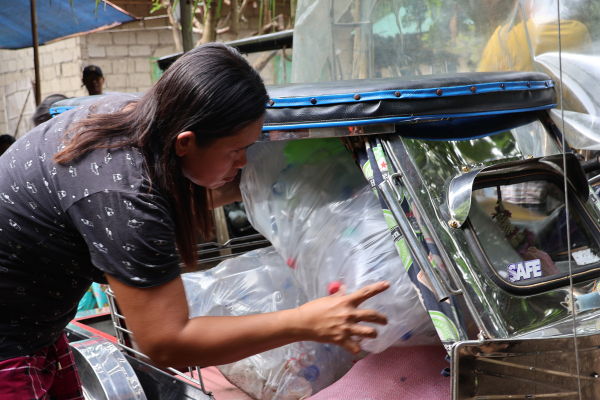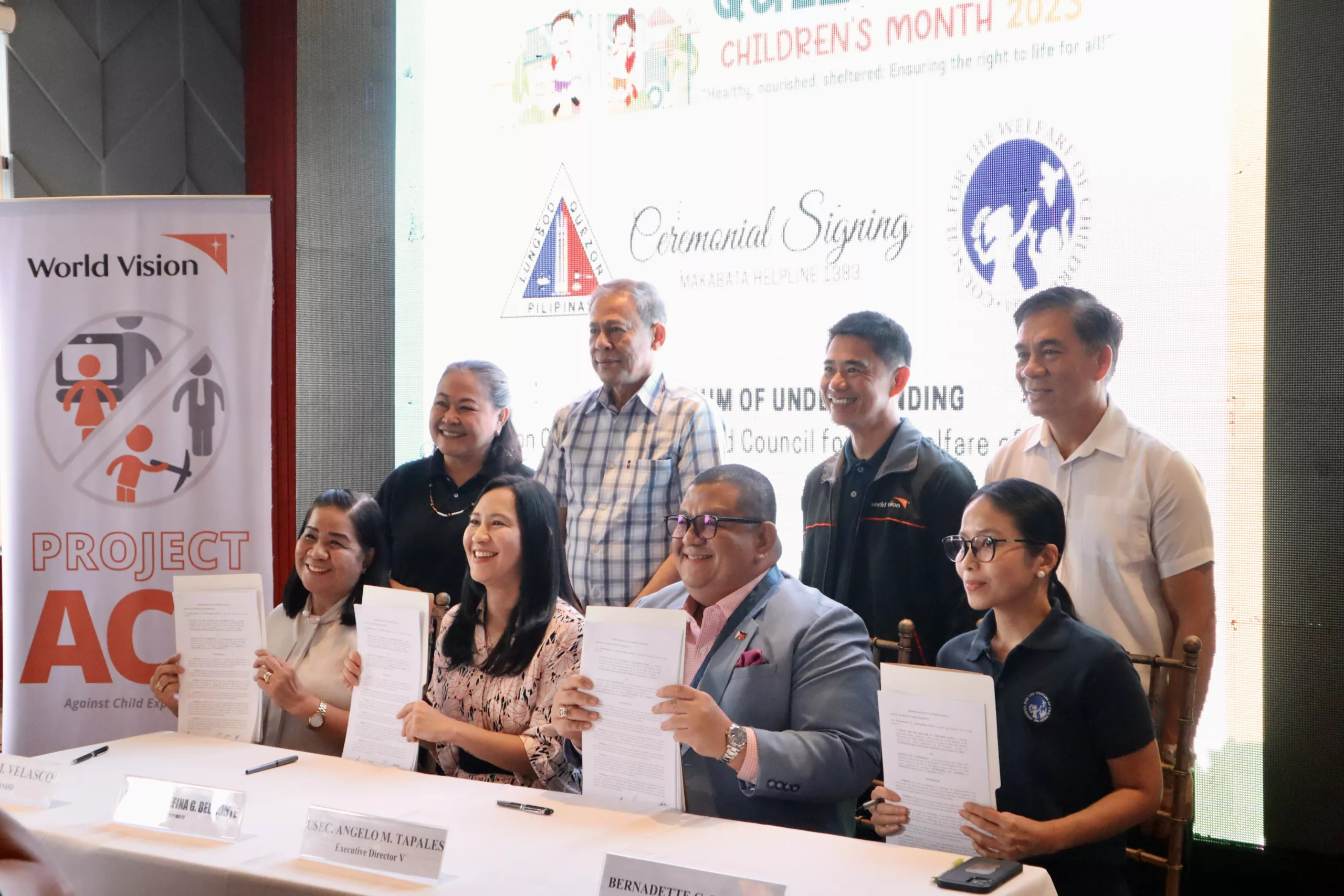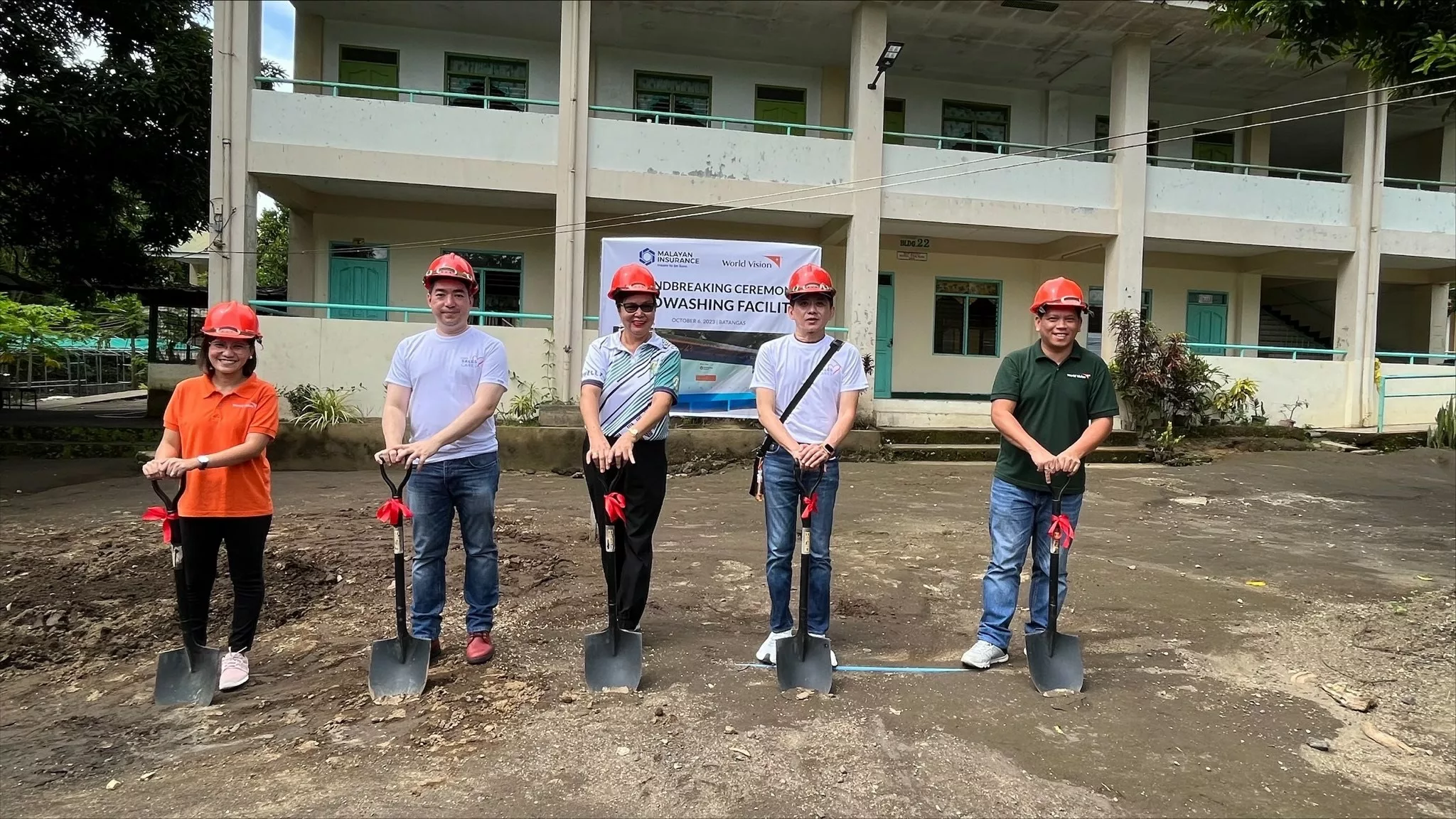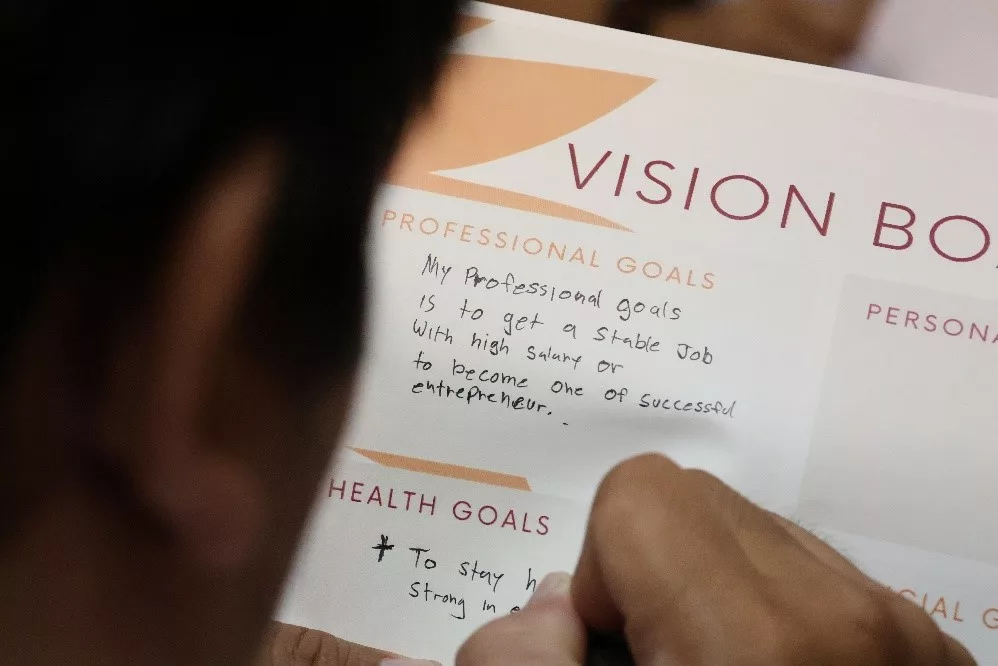Coca-Cola, World Vision collected 6 tons of plastic waste that could have polluted the scenic Lake Taal
BATANGAS — Around six tons of plastic waste were collected through The Coca-Cola Foundation and World Vision’s Plastic to Profit project that could have ended up polluting the scenic Taal Lake surrounding Taal Volcano, an active volcano and famous tourist destination.
“The Plastic to Profit project aims to raise awareness on how to take care of the environment by properly disposing of wastes,” says Karen Rayos, World Vision project coordinator.
Under the project, community members bring their waste to either the schools or to their local officials. “They can get either school supplies or grocery items for every one kilo of cleaned plastic bottles,” Karen says.

Students Apple, 7, and Lady Well, 8, have been collecting plastic bottles in their community in exchange for school supplies like notebooks, pencils, and crayons.
“Whenever I see a plastic bottle, I quickly pick it up,” says Apple.
“I help my mom clean dirty plastic bottles,” Lady Well adds.
Teacher Adelaida “Adel” Mayuga beamed with joy at seeing students carrying plastic bottles and wrappers to school. “The Plastic to Profit project has played a huge role in raising students’ awareness of collecting plastic wastes and bottles. Previously, they just threw their trash in the surroundings. Now, they have adopted the habit of picking it up,” she says.

Local government officials and residents were also oriented on waste management. “Waste is one of our major problems, but we are resolute to resolve it because if a town or barangay is not kept clean, it will not prosper. The Plastic to Profit project is a great help in lessening the plastic wastes scattered around in our community,” Mayor Lyndon Bruce shares.
A Materials Recovery Facility (MRF) was also constructed where the plastic materials are sorted and managed by the local environment agency. Philippine Republic Act No. 9003 or the “Ecological Solid Waste Management Act of 2000” mandates that all materials be recycled to promote a clean environment.
The plastics collected from schools and the MRF were turned over to companies for upcycling. Plastic wrappers, for instance, were upcycled to become school chairs.
After a year of the project implementation, Karen observed a noticeable shift in people’s awareness about proper waste management. ‘They’ve come to realize that plastics aren’t merely disposable waste; they hold value,” she remarks.









